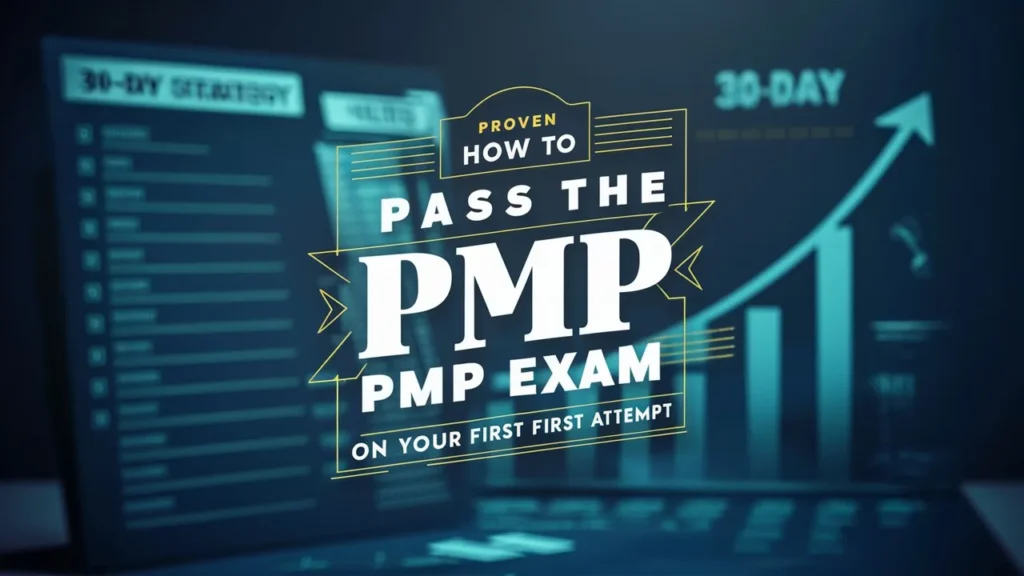Introduction
If you’re a project management pro with 8-30 years of experience, the Project Management Professional (PMP) certification is a powerful way to validate your expertise and stay ahead. But here’s the catch: 70% of PMP aspirants fail their first attempt, often because they lean on the wrong study materials—or worse, waste time on overhyped duds. With shelves and sites flooded with options, how do you pick the best PMP books & study materials?
This blog cuts through the clutter, reviewing top resources based on real-world effectiveness, alignment with PMI’s framework, and value for seasoned PMs like you. We’ll spotlight what works, flag what doesn’t, and guide you to success. Quick Tip: Pair any resource with the PMBOK Guide—it’s your PMP North Star. Let’s explore the winners and losers.
Why Your PMP Study Materials Matter
The Stakes
What Makes a Resource Effective
Best PMP books & study materials align with the current Exam Content Outline (ECO), blend theory with practice, and cater to your expertise. Look for:
- PMI alignment: Covers PMBOK 7 principles and agile/hybrid methods.
- Practicality: Offers scenarios, not just facts.
- Depth: Explains “why,” not just “what.”
A mix of books, mocks, and tools beats any single resource.
Common Pitfalls to Avoid
Best PMP books & study materials align with the current Exam Content Outline (ECO), blend theory with practice, and cater to your expertise. Look for:
- PMI alignment: Covers PMBOK 7 principles and agile/hybrid methods.
- Practicality: Offers scenarios, not just facts.
- Depth: Explains “why,” not just “what.”
A mix of books, mocks, and tools beats any single resource.
Core Book: PMBOK Guide (7th Edition)
What It Offers
Pros and Cons
- Direct from PMI—100% exam-relevant.
- Deep on principles (e.g., Stakeholder Engagement).
- Free for PMI members ($99/year).
Cons: - Dense and abstract—tough without context.
- Light on exam-specific tips or practice.
For you, it’s a must but not enough alone.
How to Use It
Read it once, focusing on domains (e.g., Team, Delivery) and tools (e.g., Risk Register). Annotate key concepts—e.g., “Value delivery ties to Business Environment.” Pair it with a prep book for clarity. Revisit it mid-prep to connect dots.
Case Study: Lisa, a 15-year PM, skipped PMBOK and failed. After 30 hours with it—plus a companion guide—she passed above target.
Top PMP Prep Books
Rita Mulcahy’s PMP Exam Prep (10th Edition)
Overview: A gold standard, updated for 2021’s ECO. Covers processes, agile, and scenarios with Rita’s “PMP mindset” approach.
Works:
- Practical explanations—e.g., “Why escalate this risk?”
- 400+ practice questions with detailed answers.
- Seasoned PM-friendly: leverages your experience.
Doesn’t: - Pricey (~$99).
- Dense for quick reads.
Best For: Analytical PMs who want depth.
Andy Crowe’s The PMP Exam: How to Pass on Your First Try
Overview: Concise, exam-focused, with insider tips from a PMP veteran. Includes a “Velociteach” quick-reference guide.
Works:
- Clear breakdowns—e.g., EVM in 10 pages.
- 200+ practice questions plus a full mock exam.
- Engaging for busy pros.
Doesn’t: - Less agile depth than Rita’s.
- Light on hybrid nuance.
Best For: Time-crunched PMs needing a fast track.
Head First PMP (4th Edition)
Overview: Visual, beginner-friendly, with cartoons and exercises. Updated for PMBOK 7 and ECO.
Works:
- Fun, memorable—e.g., process flow diagrams.
- Strong on basics for agile novices.
- Affordable (~$50).
Doesn’t: - Too basic for your expertise.
- Skimps on advanced scenarios.
Best For: Visual learners new to PMI’s lens—not deep strategists.
Success Story: Raj, a 25-year PM, paired Rita’s book with PMBOK, passing first try. He skipped Head First—too elementary for his needs.
Supplementary Study Materials
Practice Exams and Simulators
Options: PMI’s Official Simulator ($149), PrepCast Elite ($299), Velociteach ($199).
Works:
- Mimics the 180-question format—drag-and-drops, hotspots.
- Builds stamina and pacing (230 minutes).
- PMI’s version mirrors exam difficulty.
Doesn’t: - Costly—PrepCast’s $299 stings.
- PrepCast overcomplicates explanations.
How to Use: Take 7-10 mocks, aiming for 75-80%. Review errors—e.g., “Missed agile hybrid again.”
Flashcards and Apps
Options: Anki (free), PMP Pocket Prep ($19.99), Brainscape ($9.99/month).
Works:- Quick recall—e.g., “CPI = EV/AC.”
- Mobile-friendly for commutes.
- Anki’s custom decks suit your gaps.
Doesn’t: - Pocket Prep’s questions lack depth.
- Overreliance skips understanding.
How to Use: Build 200 cards—processes, terms, formulas. Review daily.
Online Courses and Videos
Options: PMPrepCast ($279), Joseph Phillips’ Udemy ($14.99), PMI’s PMP Prep ($499).
Works:
- PMPrepCast’s 35+ hours cover ECO comprehensively.
- Phillips’ videos are cheap, digestible.
- PMI’s course aligns perfectly with PMBOK.
Doesn’t: - PMI’s price is steep.
- Udemy lacks mock exams.
How to Use: Pair with books—e.g., watch Phillips for agile, then drill PMBOK.
Example: Sarah, a 12-year PM, used PrepCast and Anki, passing with 85% mock scores. She ditched a generic app—too shallow.
What Doesn’t Work (And Why)
Outdated Editions
Why It Fails: Pre-2021 resources miss the ECO shift—People, Process, Business Environment—and agile’s 50% weight. You’ll flunk modern questions.
Avoid: Anything not updated for 2021 or later.
Overpriced Bootcamps
Why It Fails: Superficial—crams 49 processes without depth. Lacks practice for your strategic mind. Effective PMP materials need time, not hype.
Avoid: Quick fixes promising “pass in a weekend.”
Generic Study Guides
Examples: Kaplan PMP, random Amazon eBooks.
Why It Fails: Broad, not PMI-specific—misses agile nuance or ECO focus. Your experience deserves tailored depth.
Avoid: Non-PMI-aligned “all-in-one” guides.
Case Study: Tom, an 18-year PM, used a 2018 guide and failed. Switching to PMBOK 7 and PrepCast turned his retake into a win.

